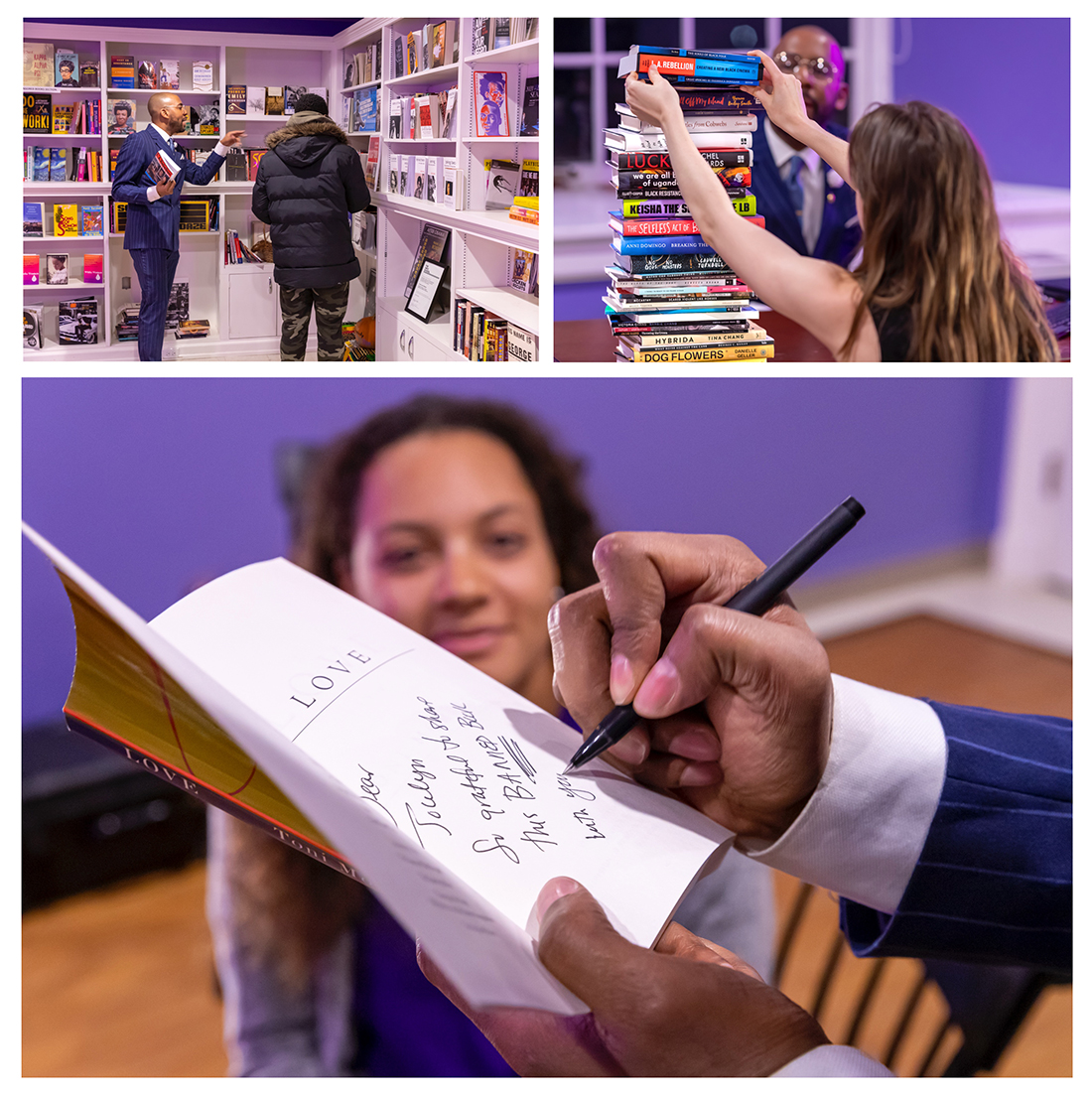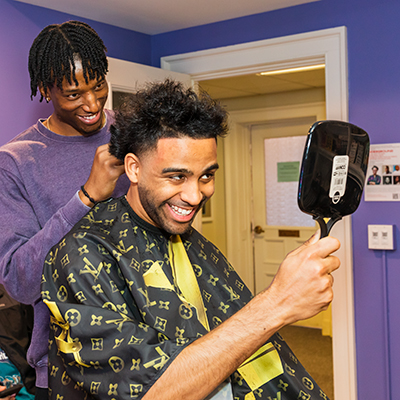When I visit Assistant Professor of English Frank Leon Roberts in his office in Johnson Chapel, he first has to stop down the hall to pick up his mail. He opens two packages, each containing a book: one by Audre Lorde, the other by Angela Davis. He adds these to the carefully arranged shelves in his office, among volumes by James Baldwin, Toni Morrison and Chimamanda Ngozi Adichie.
Roberts has been receiving books in the mail almost every day— hundreds in total, often from complete strangers. It started on Oct. 21, 2022, when he took to Twitter to share two photos of his bookshelves, with the following note:
my rule: any student who comes to my office hours can keep any book on my shelf that they like. all they need do is ask. i had a prof who used to do this back in college & ive always remembered how special it made the student-teacher relationship. lets continue this tradition.
Long active in the Black Lives Matter movement, Roberts says, he understood what it meant for a message to go viral. But he did not expect to strike such a chord with this particular tweet; to date, it’s drawn more than 20,000 likes, 2,500 retweets, 500 replies and counting. “It just took off and suddenly became this scholarly debate about educational access and educational privilege,” he says. “There was a lot of, ‘Oh, yeah, I did this,’ or ‘I had a professor who did this for me.’ And then it became, ‘OK, how can we donate some books?’”
I ask Roberts about the memorable professor who gave him a book when he was an undergrad at New York University 20 years ago. It was Phillip Brian Harper, now NYU’s Erich Maria Remarque Professor of Literature, Emeritus, who handed Roberts a copy of Disidentifications: Queers of Color and the Performance of Politics. That book affected the course of Roberts’ life: It helped inspire him to go to grad school, where its author, José Esteban Muñoz, became his dissertation adviser.
That’s why, when Roberts gives a book to a student today, “I usually write in the inscription, Keep this book for the rest of your life.”

Books arrive in the mail almost every day, often from complete strangers. He aims for intellectual challenge to take place amid a vibe of familiarity.
But office hours are for “talking about more than just books,” he says. “You’re talking about what it means to be alive.” Sometimes he’ll arrange for particular students to visit his office at the same time, so he can introduce them to one another. Once, the professor spent an hour and a half debating the relative talents of Kendrick Lamar versus “old-school hip-hop greats” with Kiiren Jackson ’24, while Jackson’s mother chimed in on speakerphone.
“It didn’t feel like I was talking to a teacher; it felt like a conversation I was having with an older cousin,” Jackson says. He took Roberts’ course “Black Genius” and, like the professor, comes from New York City. “Conversations with Dr. Roberts feel like being back in Queens.” He credits Roberts for helping him develop “a new way of appreciating art” and with creating a safe space for Black students.
“One of the powerful things about the liberal arts is that we understand that ‘safe space’ doesn’t mean a space where you are not asked to be uncomfortable,” Roberts tells me. “‘Safe’ means that we know that all opinions are going to be valued, that you will be supported in wherever you are in your journey. But when it comes to talking about, for instance, race, gender, sexuality, Black studies, we have a very uncomfortable canon, right?”
This semester—his second at Amherst—he is teaching that canon in “Foundations of African American Literature” and “The Revolution Will Be Dramatized: Contemporary African American Drama.” He says, “I want, in my classes and in the books that I give to students, for them to feel challenged, for them to really be willing to be introduced to new ideas.”
But he aims for intellectual challenge to take place amid a vibe of familiarity: “I think about office hours the way I think about my grandfather’s barbershop or my grandmother’s kitchen table, as this space where you can go to feel welcome, to learn, to laugh and to feel loved.” When Roberts invokes the barbershop, he means it quite literally. “I heard through the grapevine that there was a young man on campus who actually was already giving haircuts out of his dorm room, to other Black male students,” he says, so he began inviting Bo Oranye ’23 to his office to trim his hair. And, yes, he tweeted about that, too.
Photos by Maria Stenzel

